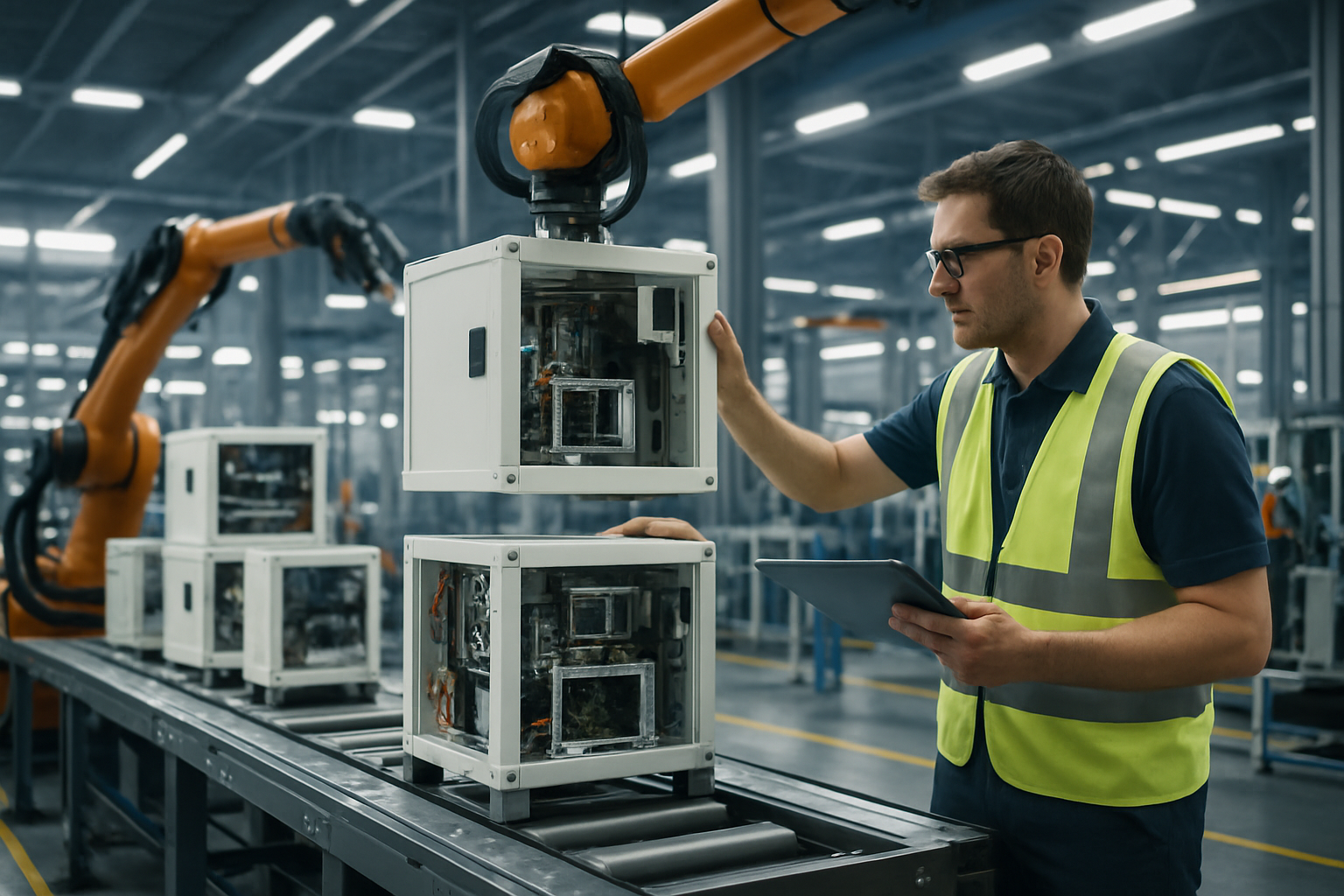Mastering Modular Production for Agile Manufacturing
The concept of modular production is revolutionizing manufacturing landscapes, offering unprecedented flexibility and efficiency. This innovative approach to industrial operations allows companies to rapidly adapt to market changes, customize products at scale, and optimize resource utilization. By breaking down production processes into interchangeable modules, businesses can achieve greater agility, reduce costs, and accelerate time-to-market.

The Building Blocks of Modular Manufacturing
At the core of modular production are the modules themselves – individual units that perform specific functions within the manufacturing process. These modules can be physical components, machinery, or even software systems. The key characteristic is their ability to be quickly swapped, upgraded, or rearranged without disrupting the entire production line. This modularity extends beyond just the physical components to encompass processes, skills, and organizational structures.
Advantages of Modular Production Systems
Implementing a modular production system offers numerous benefits for manufacturers. Firstly, it dramatically increases flexibility, allowing companies to quickly adapt to changing market demands or introduce new products without overhauling their entire production line. This agility is particularly valuable in industries with rapid product cycles or high customization requirements.
Secondly, modular production can lead to significant cost savings. By standardizing components and processes, companies can achieve economies of scale and reduce waste. Additionally, the ability to easily upgrade or replace individual modules rather than entire systems can lower long-term maintenance and upgrade costs.
Challenges in Implementing Modular Production
While the benefits of modular production are substantial, implementing such a system is not without challenges. One of the primary hurdles is the initial investment required to redesign existing production processes and equipment. This transition often requires not only financial resources but also a shift in organizational mindset and culture.
Another challenge lies in maintaining quality and consistency across modules. As production becomes more decentralized, ensuring that each module meets the required standards and integrates seamlessly with others becomes crucial. This necessitates robust quality control systems and standardized interfaces between modules.
Case Studies: Modular Success Stories
Several companies across industries have successfully implemented modular production systems, reaping significant benefits. For instance, a major electronics manufacturer adopted a modular approach to smartphone production, allowing them to quickly introduce new models and customize devices for different markets. This strategy resulted in a 30% reduction in time-to-market and a 20% increase in production efficiency.
In the automotive sector, a leading car manufacturer implemented a modular platform strategy, enabling them to produce multiple vehicle models on the same production line. This approach not only reduced development costs but also increased manufacturing flexibility, allowing the company to respond more rapidly to market trends.
Practical Strategies for Implementing Modular Production
• Start with a pilot project: Identify a specific product line or process to test the modular approach before scaling.
• Invest in standardization: Develop clear standards for module interfaces to ensure seamless integration.
• Focus on employee training: Equip your workforce with the skills needed to operate and maintain a modular system.
• Utilize simulation tools: Use digital twin technology to test and optimize modular configurations before physical implementation.
• Implement robust data systems: Ensure effective communication and coordination between modules through advanced data management.
The Future of Modular Production
As technology continues to advance, the potential of modular production is set to expand further. The integration of artificial intelligence and machine learning could enable self-optimizing modular systems that automatically reconfigure based on demand or performance data. Additionally, the rise of advanced manufacturing technologies like 3D printing could further enhance the flexibility and customization capabilities of modular production.
In conclusion, mastering modular production represents a significant opportunity for manufacturers to enhance their agility, efficiency, and competitiveness in an increasingly dynamic market environment. While challenges exist, the potential benefits make it a strategy worth considering for businesses looking to future-proof their operations and stay ahead in the ever-evolving industrial landscape.





